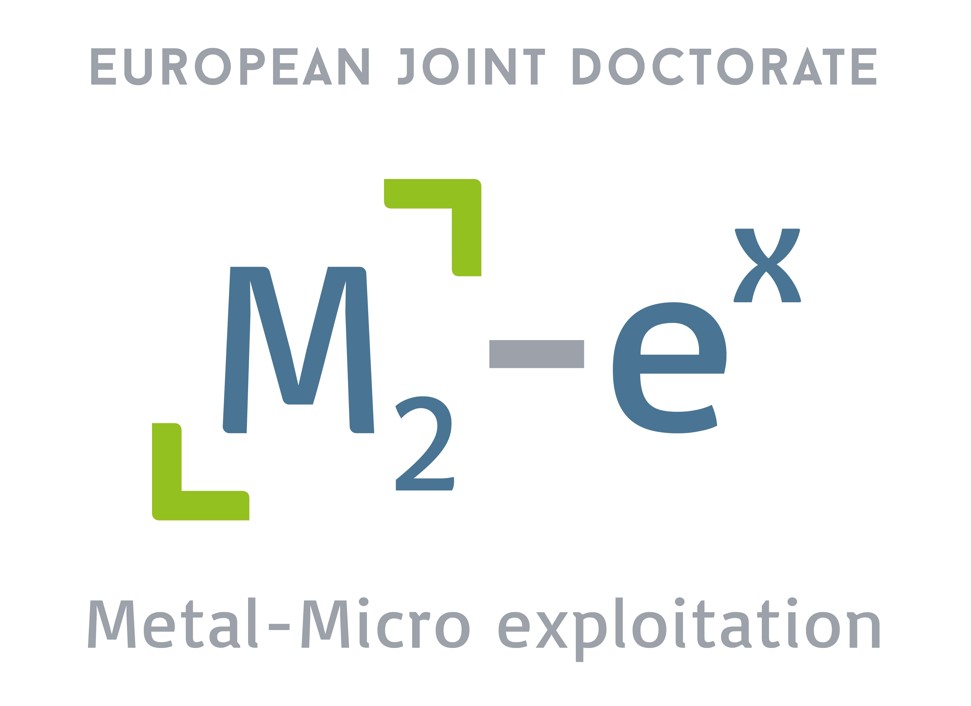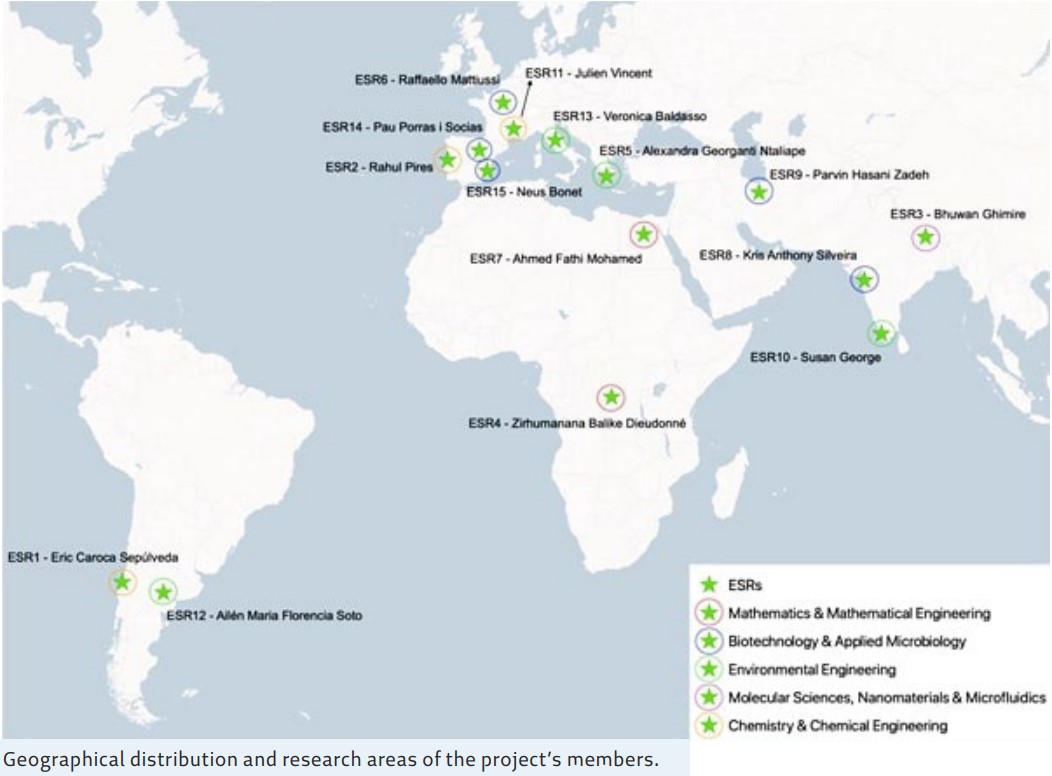Special Focus: EU Green Deal - Developing a sustainable bioeconomy: metals, microbes and beyond
Newsletter

An international group of 15 aspiring researchers, working collaboratively within 5 European laboratories, join forces to tackle the rising problems of waste generation and energy demand. The key might lie within deciphering the complex role of metals in energy production and recovery approaches.
As a society, we are facing and will continue to face enormous challenges, such as climate change, food and water shortage, waste generation and natural resources depletion. Over the years, these problems have become complex, almost impossible to solve, and little attention has been given to the numerous concrete actions taken to tackle these issues.
It is of utmost importance to continue finding innovative strategies that will bring targeted solutions without posing additional environmental and health risks. The M2ex project is a European Joint Doctorate funded by the European Union’s Horizon 2020 research and innovation programme under the Marie Skłodowska-Curie grant agreement. 861088. It attempts to develop new circular economy waste management strategies, based on waste valorisation, resource recovery, reutilisation, and bioenergy production.
The project’s core focus is on trace metals because they are natural resources with a big environmental footprint needed for the better functioning of bioenergy processes. They are also potentially toxic for humans and ecosystems if released into the environment. Therefore, the project aims at understanding their role and dynamics in bioenergy production technologies, such as anaerobic digestion (AD), as well as their presence and fate in the generated waste and the environment.
Metals in AD: From cradle to grave
AD is a common waste treatment technology in which organic waste from agricultural, industrial, or sewage systems get broken down in reactors by microbial activity. The main end-product is biogas, a great source of energy that can be used as engine fuel or converted into heat and electricity. Another valuable residue of AD is digestate, a nutrient-rich material that can be applied to soils as agricultural fertilizer. A variety of physical, chemical and biological factors support proper functioning of anaerobic digestion processes. Several metals, in small and balanced amounts, are key for developing and maintaining a strong, active microbial community (Fermoso et al. 2019), and therefore, need to be constantly supplied.
The metals interaction with microbes in AD, the way they shape their ecology and how these organisms influence metal chemistry in return, will be addressed. This will be crucial to establish a proper usage of metals in the AD process. A great part will be dedicated to studying transfer and movement of metals from digestate into natural environments, and their interactions with plants and soil microorganisms. Strategies to recover metals along the entire AD process chain will also be studied to prevent their release in the environment. Finally, bioremediation processes for metal uptake directly from contaminated wastewaters, digestates or contaminated soils will be developed, thus closing the loop and permitting metal re-use in the AD process.
Collaboration: long-term source of energy
The project takes advantage of the incredible cooperative dynamic, rendered possible by its founders, to approach different but intertwined aspects of this question. Thanks to the expertise of the 5 European host laboratories, the project unites many disciplines and scales, from molecules, to cells, to the environment.
The host institutions and expertise of the labs involved are:
- Università degli studi di Napoli Federico II (UNINA): Mathematical modelling
- Universidade do Porto (UP): Ecotoxicology and environmental remediation
- Instituto de la Grasa, Seville (IG-CSIC): Bioprocesses for Circular Economy
- National University of Ireland Galway (NUIG): Applied microbiology
- Université de Limoges (UNILIM): Aquatic environments ecotoxicology & chemistry of water contaminants
Collaborations with other European research and industrial partners make M2ex an international and synergistic project.

A shared journey

The project will train 15 fellows to become future leaders of Europe’s circular bio economy. Thanks to the diversity of the programme, the fellows have the possibility to explore different cultures, enrich their experience and make life long bonds. The ESRs come from 12 countries, located in 4 continents. One thing ties them together and makes them the perfect fit for M2ex: their passion for environment and its protection, and building a sustainable society through technological development. The ESRs academic backgrounds are in:
- Environmental engineering
- Mathematics
- Chemistry
- Applied microbiology
- Molecular sciences
The great variety in fields will contribute not only to the success of the overall project but also to the growth of each researcher. The ESRs will have the opportunity to attend network-wide training, necessary to expand their knowledge on the research topics, and obtain complete and global scientific formation. In the course of the project, they sciences will also learn soft and transferable skills essential to become frontrunners for the next generation of researchers in the field of bioenergy production, waste management and environmental remediation.
Veronica Baldasso
Early Stage Resercher (ESR 13)
veronica.baldasso@fc.up.pt
Raffaello Mattiussi
Early Stage Researcher (ESR 6)
r.mattiussi1@nuigalway.ie
More information
The M2ex project can be found on Twitter, Instagram and LinkedIn